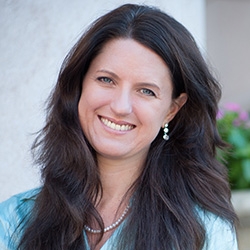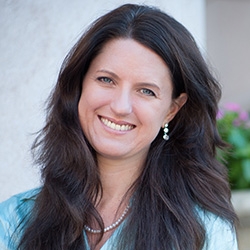

Search Results: time
-
Trainer Tip: Sometimes we need to empathize with a person before he can hear our anger. Consider that all anger is an expression of an unmet need. If we focus on the need, rather than the actions, we are more likely to connect compassionately with other people. Be aware of opportunities to empathize with someone’s anger today.
-
Trainer Tip: Sometimes I wish others would make it easy for me to live my values. If other people would just do their part, I wouldn’t have to work so hard at doing mine. Can you relate? However, if I support peace in the world, this means I act peacefully because it’s important to me, not because it’s important to others. Identify your most important value today. Then live it. Notice how healing this can feel even just after one day.
-
Trainer Tip: Sometimes when we look to fix someone's problems we think we're doing it to make them feel better, but in reality we are uncomfortable and we want to feel better. Instead of assuming you know what their problem is or what they need, listen deeply. Your listening presence can bring relief to the both of you and provide additional opportunities for healing. And along the way they may find their own way to a solution.
-
We all blow it sometimes. Maybe we are triggered and react in ways we regret. Or we unknowingly say or do something that unexpectedly touches a nerve for someone else. Either way, how do we heal the disconnection? In this session, you'll learn how to integrate skills for repairing relationships.
-
Trainer Tip: Sometimes our actions keep us from meeting our needs. Let’s say you long for connection with others, but you are also afraid of it, so you push people away. Then you tell yourself that no one likes you, resulting in depression and self-criticism. Self-empathy can help clarify what we truly want rather than focusing on what is wrong with others or ourselves, and help us align in ways more likely to meet our needs.
-
We sometimes forget our intention to stay fully present and awake, it happens to all of us. Join CNVC Certified Trainer Arnina Kashtan as she explores this forgetting, how we hold it and what we can do about it.
-
Learn seven steps to keep NVC groups engaged and energized.
-
Sometimes when we regard needs as something that could be met or unmet by another person or by a situation we unconsciously hold the belief that our needs should be met. Or we end up holding blame or implying wrongdoing. People are more likely to resist a request made from this stance. Instead, here are practices to increasingly losen any remaining attachment or demand energy -- and open our hearts to ourselves and others while we make requests.
-
Sometimes we want to avoid placing our love and trust in someone, to protect our hearts and our life energies. And so there are deeper questions that we can use to check whether we're in relationship with someone who doesn't have capacity to be in relationship with us (eg. “Do I have a sense of mattering in this relationship?”). Read on for more questions we use to assess our empathy and efforts in relationships.
-
Yvette Erasmus suggests that making peace with our feelings reduces suffering. Sometimes we want to hurry through our feelings and just feel better.
-
Sometimes the empathy you offer may stimulate disconnect or a sense of boundary crossing for the other person. To identify what might have contributed to the disconnect you can look for the signs, the level of attunement and the context, and examine what's happening in you. Read on for more.
-
When we're faced with certain situations we tend to go into a fight, flight or freeze mode. While these can sometimes be helpful and even lifesaving, they can also be crippling when the situation may not be life-threatening. In this episode, we give you some tips on how to shift into a more intentional way of handling difficult situations.
-
Sometimes life gets so busy that even the things you enjoy seem to go by without you receiving that feeling of joy. It's important that even when we are busy to celebrate life to the full. In this month's Life Hack Gesine explores 7 things to keep in mind when remembering to celebrating life.
-
We live in a world where there is a lot of anger. It can be a strong and intense emotion that we feel or receive from others sometimes on a daily basis. Whether that's an agitated partner, road rage, or a disgruntled colleague. While we're familiar with this feeling, we're not necessarily well equipped with how to express it in a healthy way. In this month's Life Hack, Shantigarbha takes us through a guided reflection on anger.
-
Yvette Erasmus shares Terry Real's grid as a tool for exploring a spectrum of emotional responses. We all have feelings and sometimes we get dysregulated or frozen up. How do you want to express and be in connection with other people? Can you attune to the relational context that you are in?
-
Grieving reminds us of the preciousness of life, it helps us integrate loss, and it opens us to deeper compassion, inspiration, and joy. We need to create space in our lives to grieve fully.
-
For many, the word “need” is associated with lack, neediness, and scarcity. These associations are the opposite of the meaning of needs in Nonviolent Communication (NVC). In NVC, needs are the motivational energy of our innate wholeness and desire to grow, like the energy of a plant pushing it up through the soil and toward the sun.
-
-
-
Trainer Tip: Even if we don't agree, acknowledging others' realities can help demonstrate that we're including their feelings and needs in the conversation. Creating space for your reality and theirs can also bring a sense of connection, understanding, inclusion, abundance and fullness in life. Try it today. Read on for an example.
Quick Links

Stay in Touch!
We value your privacy, won't share your email address and you can easily unsubscribe any time.


















